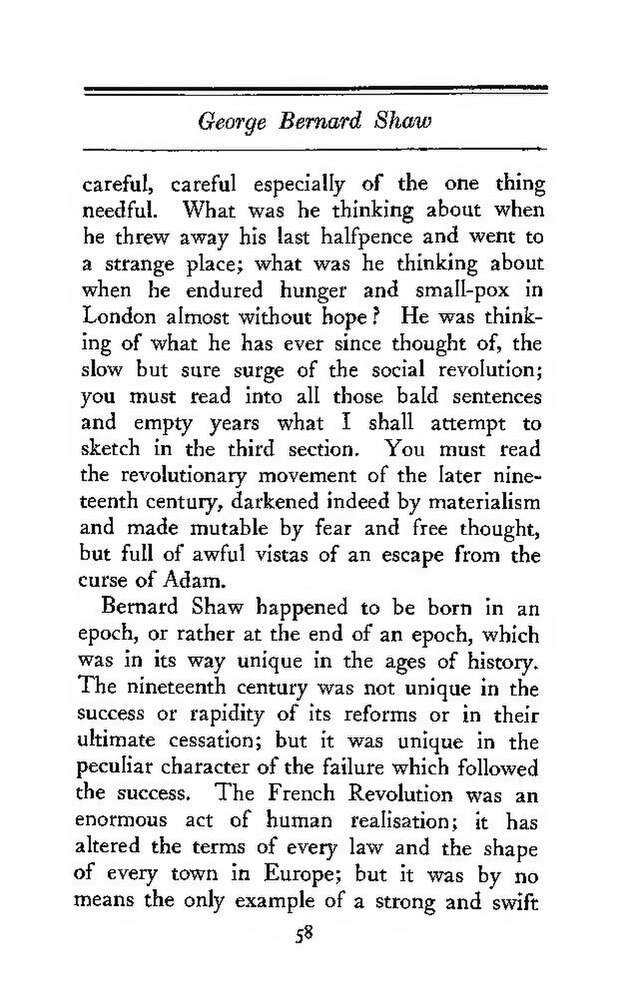careful, careful especially of the one thing needful. What was he thinking about when he threw away his last halfpence and went to a strange place; what was he thinking about when he endured hunger and small-pox in London almost without hope? He was thinking of what he has ever since thought of, the slow but sure surge of the social revolution; you must read into all those bald sentences and empty years what I shall attempt to sketch in the third section. You must read the revolutionary movement of the later nineteenth century, darkened indeed by materialism and made mutable by fear and free thought, but full of awful vistas of an escape from the curse of Adam.
Bernard Shaw happened to be born in an epoch, or rather at the end of an epoch, which was in its way unique in the ages of history. The nineteenth century was not unique in the success or rapidity of its reforms or in their ultimate cessation; but it was unique in the peculiar character of the failure which followed the success. The French Revolution was an enormous act of human realisation; it has altered the terms of every law and the shape of every town in Europe; but it was by no means the only example of a strong and swift
58
